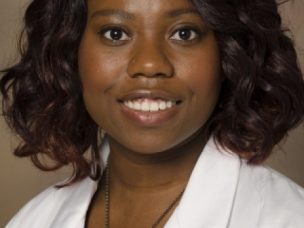Expert Opinions
Dr. Onyemaechi Okolo: Multiple Myeloma Disparities
In this MD Newsline exclusive interview with oncologist Dr. Onyemaechi Okolo, we discuss how Black/African American patients with multiple myeloma fare compared to patients of other racial/ethnic backgrounds. We also discuss the role of medical education in reducing health disparities. MD Newsline: How do Black/African American patients with multiple myeloma fare compared to patients of...
Dr. Onyemaechi Okolo: Multiple Myeloma in the Black Community
In this MD Newsline exclusive interview with oncologist Dr. Onyemaechi Okolo, we discuss the high incidence and prevalence of multiple myeloma in the Black community. We also discuss how multiple myeloma presents in Black Americans. MD Newsline: Why is multiple myeloma so prevalent in the Black community? Dr. Onyemaechi Okolo: “So, there is a genetic...
Dr. Murtaza Adam: Wet AMD Treatment and Clinical Research
In this MD Newsline exclusive interview with vitreoretinal specialist Dr. Murtaza Adam, we discuss treatment strategies for wet AMD and the latest research. MD Newsline: What is your treatment strategy for wet AMD and how is it tailored to each patient? How do these treatments work? How do you decide when to switch treatments? Dr....
Dr. Murtaza Adam: Wet AMD, Treatment Barriers, and COVID-19
In this MD Newsline exclusive interview with vitreoretinal specialist Dr. Murtaza Adam, we discuss barriers to treatment adherence and COVID-19 as they relate to wet AMD. MD Newsline: What are the major barriers to wet AMD treatment adherence? Dr. Murtaza Adam: “The first thing people think about when they go for their first appointment for...
Dr. Murtaza Adam: Wet AMD and Vision Loss
In this MD Newsline exclusive interview with vitreoretinal specialist Dr. Murtaza Adam, we discuss what wet age-related macular degeneration is and why it matters. MD Newsline: Can you explain why age-related macular degeneration (AMD) in general, and wet AMD in particular, are such important health issues? Dr. Murtaza Adam: “Age-related macular degeneration (AMD) is the...
Dr. Murtaza Adam: Risk Factors for Wet AMD
In this MD Newsline exclusive interview with vitreoretinal specialist Dr. Murtaza Adam, we discuss risk factors for wet AMD. MD Newsline: Is there a genetic predisposition for wet AMD? Dr. Murtaza Adam: “Really, we don’t fully understand the genetic causes of age-related macular degeneration (AMD). We have implicated at least 70 genes in the development...
Dr. Murtaza Adam: Providing Culturally Sensitive Care
In this MD Newsline exclusive interview with vitreoretinal specialist Dr. Murtaza Adam, we discuss how to provide culturally sensitive care and overcome language barriers. MD Newsline: How have you been able to implement culturally sensitive care in your practice? Dr. Murtaza Adam: “Cultural sensitivity was a large component of my medical education. It wasn’t taught...
Dr. Andrew Cronyn: Providing LGBTQ-Culturally Sensitive Care
In this MD Newsline exclusive interview with pediatrician Dr. Andrew Cronyn, we discuss how to provide LGBTQ-culturally sensitive care and overcome language barriers. MD Newsline: How have you been able to implement LGBTQ-culturally sensitive care in your practice? Do you believe doing so improves treatment adherence? Dr. Andrew Cronyn: “Where I was previously working where...
Dallas Ducar & Dr. Andrew Cronyn: LGBTQ+ Health Disparities | Part 2
In this MD Newsline exclusive interview with psychiatric nurse practitioner Dallas Ducar and pediatrician Dr. Andrew Cronyn, we discuss how to address anti-LGBTQ+ implicit bias in primary care. We also discuss how to rectify LGBTQ+ health disparities. MD Newsline: How can primary care physicians address implicit bias in their practice? How might their doing so improve...
More Medical News









